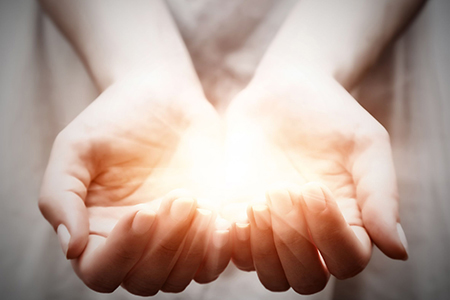For centuries the way that women have maintained influence and power is through manipulation. If most of the power is in the hands of men, then one of the ways to acquire power is to manipulate men. Women passed down these skills throughout the generations, and from my observations, many of us are really good at manipulating. I used to kid my friends that I learned the power of using guilt from a master—my mother.
Then I grew up and entered the business world where I learned more about power. I saw how both women and men used manipulation in the workplace. I worked in a number of companies where owners, managers and employees in some form or another attempted to manipulate other people in the company in order to get what they wanted. Observing the resulting struggles motivated me to eventually teach communication techniques to businesses that wanted better internal performance, and were willing to surrender the limits of manipulative communication.
Government has become a skilled user of manipulation. One of the most manipulative letters I have ever received came from traffic enforcement. If I hadn’t been advised by a friend to call the 800 number at the bottom of an extremely intimidating letter, I would have assumed I was going to owe over $75.00 because I didn’t have the correct $.75 change at an honor-system tollbooth!
Of course, if manipulation doesn’t work, there is always physical force. How many wars on this planet have been waged because we couldn’t manipulate a group of people into doing what we wanted them to do? There seems to be this assumption that winning is a show of power, but is that real power?
If I oppress someone else in order to get what I want, then it seems to me I have furthered the cycle of oppression, and if that is power, then power has a backlash of resentment and retaliation, and that isn’t the kind of power I am seeking.
My clients have shown me that many people who want greater power in their lives want to be seen, heard, respected and recognized. They want greater influence in the creation and management of their own lives. They want to feel Divine power flowing through them as they become greater creators of their own reality.
Last week I wrote about how I attempted to manipulate (gain power) through my anger. I know in the past, I have used my anger to help me get to the place that I could finally recognize and speak my truth—so that I could be heard and respected— but over the years, I have come to believe that using my anger to help me finally speak is not necessarily the same as using my anger as a weapon. As a woman who works a lot with women, I think many of us have operated under the misconception that our anger was okay if it was helping us stand in our power.
Anger or frustration can indeed be healthy if it helps us identify our own truth so that we can take stand for what we believe in, but lashing out in anger is not a power stance. Too often “standing in my power” is used to describe situations in which someone else is being blamed. Blaming someone else for the reality I have created might better be defined as “giving away my power.”
So back to the question: “What is true power?” I look to people I have known in my life that seem to embody true power, and I ask myself: “What are the qualities I see in them?”
From shamans and medicine people, to wise elders, to masters, to innocent children, to dear friends—the people I know who live in their power seem to embody these qualities:
1) know themselves intimately well;
2) are deeply honest and truthful with themselves and others;
3) own and embrace both their perceived strengths and weaknesses;
4) rarely raise their voice and yet are easily heard;
5) are kind and compassionate toward themselves and others;
6) live practically blame and judgment-free;
7) are willing to honor others’ journeys without needing to make them change;
8) understand there is a Mystery unfolding through our explorations of life and honor the unique journeys;
9) live from a place of endless compassion and understanding;
10) hold themselves to high standards of selfless service;
11) hold themselves accountable for what they say they want to be; and
12) see the humor in being human.
In the presence of someone like this, I feel true power. I feel empowered and inspired to be my best. Standing in my power then becomes an act of knowing who I am and being willing to discover who you truly are—respecting both of us in the process.
Standing in my power is not an act or words made in anger. Standing in my power is not about cheerleading myself or attempting to will myself to be something I am not. Standing in my power is a state in which I am living from my deepest known truth with regard for your truth at the same time.
Standing in your power transcends the limits of manipulation or force. True power…..well, you tell me. What does standing in your power mean to you?


